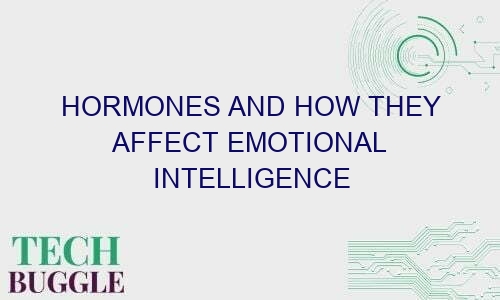Did you know that the hormone oxytocin is produced by the touch of other people? This hormone helps us build social bonds. There are four neurochemicals in the human brain. They produce the feeling we describe as “happiness.” And endorphins suppress physical pain. Dopamine is responsible for motivation and the heady feeling of success after hard work: it “rewards” us for achieving a goal. Serotonin is responsible for decision-making, suppression of negative emotions, and self-confidence. Oxytocin helps build relationships. Whether it’s an important exam, an upcoming date, an opportunity to hit a jackpot at Hellspin, or a burning deadline, the thought of it just flashed through your mind, and your heart is already beating like a marathon runner.
Your pancreas is releasing hormones into your bloodstream, and your nervous system is ready to give the “Fight!” command. This is how our bodies react to emotions and produce hormones.
Let’s talk about one of the most important topics: neurotransmitters and how they affect our lives. We will learn what emotional intelligence is and how to manage it. This topic isn’t so much about psychology as it is about the physiology of the body. Our quality of life is overseen by our hormonal system.
The Role of Hormones in the Human Body
Currently, there are over 60 different hormones known. It has been found that hormones play a leading role in connecting all systems in the body. On a par with the autonomic system, the immune system regulates all the processes that occur in general in our body. The word “hormone” appeared in the 20th century, from the Latin word “to induce.” Hormones are designed to adjust and control all the processes that occur in our body. Hormones are biologically active substances of organic nature, produced in specialized cells of internal secretion glands, entering the blood, binding to receptors of target cells, and having a regulating effect on metabolism and physiological functions.
Hormones have a distant effect: getting into the bloodstream in various organs and systems of the body, they regulate the activity of an organ located far away from the gland that synthesizes them, and even a very small amount of hormones can cause significant changes in the activity of the organ. The brain transmits nerve signals throughout the body with the help of axons, outgrowths of cells, because the brain is a complex of neurons. It’s the one that projects and produces hormones. Without hormones, there is no process in the body, and the same is true in the brain.
According to the research results available at the present stage, insufficient or excessive synthesis of hormones negatively affects the molecular mechanisms underlying the regulation of metabolic processes in the body, and this, in turn, contributes to the development of virtually all diseases of the glands of internal secretion.
What Emotional Intelligence Is
Emotional intelligence (EQ) is a person’s ability to perceive his or her own emotions and to grasp the emotions of others. Unlike IQ, which is laid down genetically, a person can adjust and increase his or her emotional intelligence throughout life. It’s the sum of a person’s skills and abilities to recognize emotions, to understand the intentions, motivations, and desires of others and one’s own, and the ability to manage one’s own emotions and the emotions of others in order to solve practical problems.
Emotional intelligence has been responsible for human survival at all times throughout the chain of evolution.
The problem of emotions and emotion control was well addressed by Sigmund Freud, the founder of psychoanalysis. He believed that the first laws and prescriptions of emotional ethics can be regarded as the first attempts to curb and civilize the manifestations of emotions. That, in turn, also has a beneficial effect on the physical health of a person.
How to Know Your Emotional Intelligence
Emotional intelligence is not as distant and difficult to understand as it may seem at first glance. It reflects our quality of life: physical and emotional health, the ability to build harmonious relationships with family, friends, and colleagues. Emotional intelligence makes it possible to build successful systems of people management. Ability to adapt to new circumstances, stable emotional state, ability to solve conflicts, and ability to correct the emotions of other people (to guide, smooth out negativity, and encourage the other person to act).
Let’s look at the signs of high and low emotional intelligence.
Signs of High Emotional Intelligence
- The ability to distinguish the nuances of emotions.
- The ability to articulate and understand one’s own emotions and the emotions of others.
- Have the skill of establishing rapport with a variety of people.
- Be responsive, “flexible,” and able to make compromises.
- Understand the needs of others.
- Be able to say no and assert personal boundaries.
- Respect the personal boundaries of others.
- Be able to adapt to new circumstances.
- Have a stable emotional state.
- Be able to resolve conflicts.
- Be able to adjust other people’s emotions (guide, smooth out negativity, and encourage the other person to take action).
Signs of Low Emotional Intelligence
- You are easily stressed.
- You notice a low level of assertiveness.
- You have a limited emotional vocabulary.
- You make assumptions quickly and defend them fiercely.
- You are resentful.
- You often feel misunderstood.
- You don’t know your triggers.
- You don’t get angry.
How Low Emotional Intelligence Affects Human Health and What Hormones Have to Do With It
Low emotional intelligence, or an inability to manage your emotions, triggers reactions in the brain to produce “bad” hormones, which leads to hormone disruption. Here are some of them:
- Thyroxine usually manifests as overweight, apathy, swelling, and confusion.
- An imbalance of sex hormones causes heavy hot flashes and sleep disturbances.
- Excess noradrenaline and adrenaline manifest in irritability, anxiety, and aggression.
Our mood depends on oxytocin. Its presence helps return a friendly mood.
Let’s consider what consequences lead to hormonal failure.
At the psychological level, it leads to irritability, apathy, depression, moodiness, insomnia, memory impairment, and tremors. In men, it may manifest in the appearance of female figure features and patterns of psychological behavior. In turn, women may exhibit masculine qualities.
At the physical level, there are frequent cases of loss of consciousness, sudden changes in blood pressure, the appearance of thickening in the mammary glands, constant bloating of the abdomen, unreasonable weight gain or loss, swelling of the entire body, a general state of fatigue and malaise, metabolic disorders, cell life cycles, reduced reproductive functions in men and women, flabbiness and dryness of skin and hair, nausea, freezing, and early development of symptoms of aging. Older people experience hunched posture and pain in muscles and bones.
The first manifestations of hormonal disruption are usually not noticed. Irritability, fatigue, and insomnia are explained by stress and fatigue. But if you don’t go to the doctor and don’t treat the disease, then there will be pronounced symptoms of hormonal failure.
How to Increase Emotional Intelligence
Realize What You Are Doing
Often, we don’t think at all about what we spend our time doing. We seem to be on autopilot, checking email, messaging, scrolling through social media, watching YouTube, checking email again, and so on and so forth. We also get distracted by video games, TV shows, and arguing with people. Also, all mechanical activities take us out of a state of healthy focus and take us away from achieving high levels of emotional intelligence. Eliminating distractions from your life is the first step to increasing your self-awareness. Connect more with real people, meditate, and minimize the use of gadgets and phones.
Recognize Your Weaknesses
Take in all the unpleasant and uncomfortable emotions you are experiencing. For example, you get offended when you are interrupted in a conversation. You take it as a personal insult and become rude. That’s your weakness. And only when you realize it can you react to it properly. And so with all emotions, experience them, realize them, and analyze your behavior.
Channel Your Emotions in the Right Direction
There are no “good” or “bad” emotions. There are only “good” and “bad” reactions to them. For example, anger can be a destructive emotion if you channel it to hurt yourself or others. But it can also be beneficial if you use it to right an injustice or protect yourself or others.
Learn to Motivate Yourself
Most people try to find inspiration or motivation first so that they can then take some major action that will change their lives. They believe that once they choose the right method, they will be energized and take on work, exercise, or creativity. However, the next week, the fervor runs out, and it’s back to square one. Therefore, you should use a different method. You shouldn’t wait for inspiration or look for motivation, but start to act. An important factor to consider is that you won’t always be motivated by “good” feelings. You may become frustrated, annoyed, or worried if you don’t achieve results right away. Turn those emotions into motivation and just keep going. After all, the sweetest victory is the one you achieve against all odds.
Recognize Other People’s Emotions
The main goal of developing emotional intelligence is that it should help you build healthy relationships with others. Any healthy relationship — romantic, familial, or friendship — starts with recognizing and respecting each other’s emotional needs. This can only be achieved by listening to and empathizing with others.
Sympathizing with someone doesn’t necessarily mean fully understanding them. Learn to accept and appreciate your loved ones for who they are, even if you don’t understand them.

